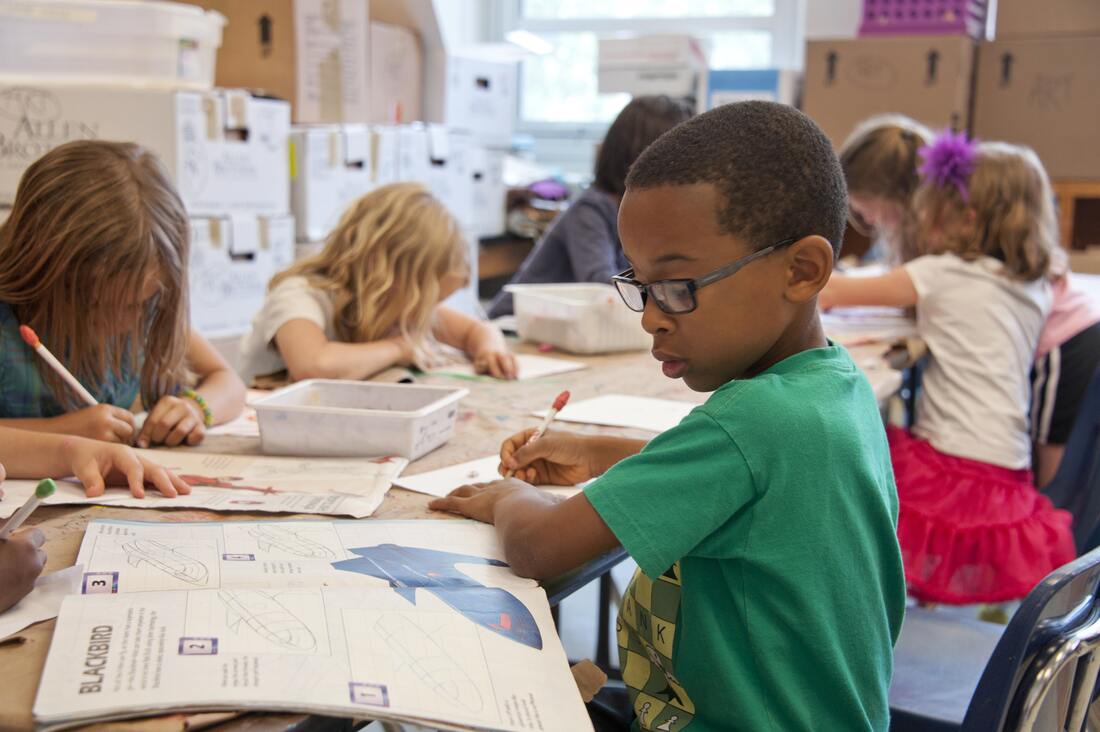Professional Development - staying current and utilising best practice!
It is important that all individuals are constantly ensuring their knowledge and skill set remains current, utilising research based strategies and interventions. This is exactly what we offer through our webinars and professional development.
Below is a list of the topics that we offer and a brief overview of what is covered. We attempt to cater to individual/organisational needs and tailor our presentations as best we can.
Our Professional Development sessions are conducted in 1 hour, 2 hour or 4 hour sessions. More than one topic can be covered in a session, however, a minimum of 30 minutes for each will be required. (Please keep in mind that if you wish to enable in-depth and comprehensive discussions you will need longer). Don't hesitate to contact us to discuss your requirements and needs and we will work out a professional development plan to suit you!
Below is a list of the topics that we offer and a brief overview of what is covered. We attempt to cater to individual/organisational needs and tailor our presentations as best we can.
Our Professional Development sessions are conducted in 1 hour, 2 hour or 4 hour sessions. More than one topic can be covered in a session, however, a minimum of 30 minutes for each will be required. (Please keep in mind that if you wish to enable in-depth and comprehensive discussions you will need longer). Don't hesitate to contact us to discuss your requirements and needs and we will work out a professional development plan to suit you!
Behaviour
|
Behaviour is always a hot topic when it comes to educators and building new and successful strategies.
What we always need to be doing is looking at what behaviour is attempting to communicate to us, how the behaviour is serving what the student needs and if the behaviour is conscious or a visceral (uncontrollable) reaction from past trauma. Children need to feel safe, secure, wanted and understood and in order to do that we have to get to know the individual, build positive interactions and listen to what they are telling us (both verbally, through body language and subconsciously). |
Topics can include:
Please note that if you require behaviour intervention and in-depth assistance then we can also help with that.
- Overview of behaviour, reasons, common strategies and the importance of relationship
- Trauma Based Behaviour Interventions (Polyvagal Theory)
- Positive Behaviour Supports
- Functional Behaviour Supports - including Behaviour Intervention Plans (BIPS), ABC charts and analysis
Please note that if you require behaviour intervention and in-depth assistance then we can also help with that.
Inclusion
|
Intentional and authentic inclusion is always the desired outcome but getting there can be more challenging than we realise.
This session will outline what inclusion is and is not, how we begin/proceed with our journey. We will discuss common road blocks and ways to navigate our way around them. Through lots of real world examples, applicable solutions and interactive brainstorming and collaboration this session will demonstrate to educators that they aren't alone on their journey to inclusion but through sharing the journey and concerns we can share the load. |
In order to ensure this session is highly applicable to your current situation we will offer participants the opportunity to raise questions regarding inclusion, prior to the session, to ensure we can target the outcome at the needs of the organisation,
visual supports
|
60% of the population are visual learners. Everywhere we look we are given and visual cues, supports and communicated to through them. However, when we look at schools, a lot of the time, we see a lack of these integrated into everyday life. Through looking at different visual supports and cues, having
|
explicit directions on how they should be incorporated and integrated into the classroom and school in general and offering free downloads of these to attendees. Through utilising these visuals you will see students not only gaining understanding on what is happening and what is expected but, they will be more engaged in their learning and have ownership over their choices.
Visuals that will be discussed and looked at included:
Visuals that will be discussed and looked at included:
- Schedules
- First/Next
- Choices
- Breaks
- Playtime
- Visual Lanyards
- Timetables
- Being Prepared
- Routine
- Transitions
- Social Stories
- Positive Behaviour
- General Classroom
- General School and more
Modifications (curriculum, learning, environment)
As educators we are constantly making modifications and adaptations to curriculum, learning, classroom set up, all while ensuring we are challenging and growing our students. This session will look at how to make these required modifications without needing to sit pulling our hair out. When looking at modifications and adaptations we will discuss some real life situations and how individuals created solutions to potential problems. Simple and quick demonstrations of how to modify curriculum to ensure it's integrity is maintained and that students are still accessing age-appropriate learning aimed at their skill set. Through this session teacher will observe that modifying learning need not be an overwhelming or challenging task but one that can be done well when we have a clear vision of what we want the child to accomplish.
In order to ensure this session is highly applicable to your current situation we will offer participants the opportunity to raise questions and send specific examples regarding curriculum. learning and environmental modifications prior to the session, to ensure we can target the outcome at the needs of the organisation,
In order to ensure this session is highly applicable to your current situation we will offer participants the opportunity to raise questions and send specific examples regarding curriculum. learning and environmental modifications prior to the session, to ensure we can target the outcome at the needs of the organisation,
communication
During this topic we look at the importance of ensuring all students have a way to communicate their wants, needs and desires in an adequate and understandable way. Whether a child is non-verbal, has limited communication methods or is a child with English as a second language we need to ensure they have a way to be heard, understood and have their needs met.
This session can go through the different ways some students (especially those with communication difficulties) can communicate including:
This session can go through the different ways some students (especially those with communication difficulties) can communicate including:
- PECS
- PODD
- FM Transmitters
- Auslan
- Key Word Sign
- Visual Cues
- Communication Boards/Lanyards
Understanding a Disability/Diagnosis
This is not a single session but offers the opportunity for you to gain more understanding and knowledge on certain disabilities and/or diagnosis's. Each one to be discussed will require a minimum of 20 minutes.
- Attention Deficit Hyperactivity Disorder (ADHD)
- Autism Spectrum Disorder (ASD) - now includes Asperger's
- Sensory Procession Disorder (SPD)
- Oppositional Defiance Disorder (ODD)
- Down Syndrome
- Global Development Delay (GDD)
- Intellectual Disability (ID)
Positive and INtentional Relationships
This session will look at the importance of ensuring that we are intentional when creating relationships with parents. Not all parents are going to be easy to get along with but, as a professional educating their child, it is imperative that we ensure, to the best of our ability, that we create strong collaborative relationships with parents to create the best learning outcomes for students.
We will outlines ways and strategies that help to cultivate these relationships and also discuss strategies to rectify compromised relationships that may have experienced a breakdown and are no-longer productive parent-teacher relationships.
Another area this session will focus on is the relationships we create with our students. Creating a safe, secure and fun (but appropriate) relationship with our students. It will showcase the importance of these relationships and the impact it has on a child's engagement and motivation to learn. We will discuss ways to encourage positive and welcoming encounters and show ways to turn challenging relationships around to create the best learning environment possible for the student.
We will outlines ways and strategies that help to cultivate these relationships and also discuss strategies to rectify compromised relationships that may have experienced a breakdown and are no-longer productive parent-teacher relationships.
Another area this session will focus on is the relationships we create with our students. Creating a safe, secure and fun (but appropriate) relationship with our students. It will showcase the importance of these relationships and the impact it has on a child's engagement and motivation to learn. We will discuss ways to encourage positive and welcoming encounters and show ways to turn challenging relationships around to create the best learning environment possible for the student.
Social Skills/Stories
Teaching students new skills and how to navigate complex (and sometimes simple) social situations can be challenging. For years teachers have used complex, wordy social stories when in reality students need simple, visual narratives and visual cues to ensure they can navigate these situations. During this presentation we will go through several examples of how to write, present and consolidate new social skills.
We will go through specific examples and will also get generic examples of these for you, the school to use and modify to suit your particular needs.
Focus:
We will go through specific examples and will also get generic examples of these for you, the school to use and modify to suit your particular needs.
Focus:
- Recognising emotions
- Emotional regulation (beyond the zones)
- Being a good friend
- Winning/Losing well
- Transitions
- Where can I go? (red and green zones)
- When I Feel.....
- Who Can I talk to?
- My Hands, My Feet, My Choice
- Active Listening
- Coming into Class
- AND SO MANY MORE!
Stakeholder meetings (ICP's) and Student voice
This session will look at the most common practices for stakeholder meetings and will discuss and outline the best way to ensure that they are intentional, authentic and productive. It will look at the best process that should be employed when making contact, planning the meeting, writing and establishing the next goals and how to ensure all parties are prepared, relaxed, informed and heard. It will also look at what happens when there is underlying tension, unease or blatant anger and how to reestablish the meeting to ensure it progresses, while still allowing the individual to feel heard.
The importance of including the student's voice in the decisions and goals that are created will also be outlined and how this can be done when it isn't possible, and/or appropriate, to have them present in the meeting.
During this session resources created by 'All for Learning' will be displayed, talked through and shared to assist with these meetings and ensuring they are as smooth, intentional and productive.
The importance of including the student's voice in the decisions and goals that are created will also be outlined and how this can be done when it isn't possible, and/or appropriate, to have them present in the meeting.
During this session resources created by 'All for Learning' will be displayed, talked through and shared to assist with these meetings and ensuring they are as smooth, intentional and productive.


